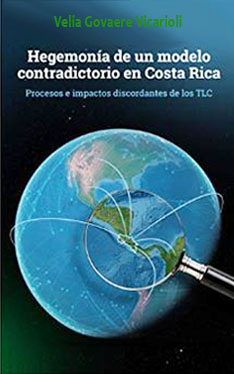Discordant processes and impacts of FTAs
 In the last 30 years, Costa Rica's economic growth and macroeconomic balance have been In the last 30 years, Costa Rica's economic growth and macroeconomic balance have been underpinned on public policies linked to foreign trade and the attraction of foreign direct investment (FDI), through a complex of internationalizing policies that include the scaffolding of the FTAs, the establishment of Free Zone regimes and the specialized nature of the public administration. This triangle of dynamic and interconnected factors has played the role of an ideal hegemonic paradigm, exercising socio-cultural hegemony that has passed through different administrations and can be represented as an archetype, with functional political, legal and administrative features.
In the last 30 years, Costa Rica's economic growth and macroeconomic balance have been In the last 30 years, Costa Rica's economic growth and macroeconomic balance have been underpinned on public policies linked to foreign trade and the attraction of foreign direct investment (FDI), through a complex of internationalizing policies that include the scaffolding of the FTAs, the establishment of Free Zone regimes and the specialized nature of the public administration. This triangle of dynamic and interconnected factors has played the role of an ideal hegemonic paradigm, exercising socio-cultural hegemony that has passed through different administrations and can be represented as an archetype, with functional political, legal and administrative features.
Costa Rica has been considered as emblematically successful in its policy of trade opening. In analyzing these achievements, this book also shows contrasting results that have generated socio-political environments of productive, commercial, legal, institutional, social and territorial heterogeneity. This duality of successes and challenges reveals functional shortcomings in the very design of a contradictory model: both successful and imperfect. From these premises, Costa Rica's development model is approached as an unfinished process where contradictory realities coexist, posing the need for a new hegemony of convergence between the current contradictions.
This book is a legal-administrative and political-commercial study of the performance of the Costa Rican development model. This work is nourished by the study of the specialist from the Universidad Estatal a Distancia (UNED) on the prolegomena of the impacts and processes of the FTAs in Costa Rica.
Book Available on:

